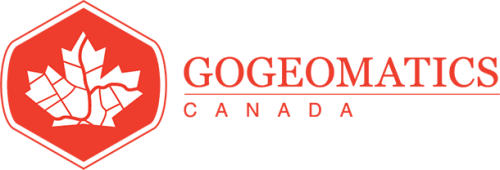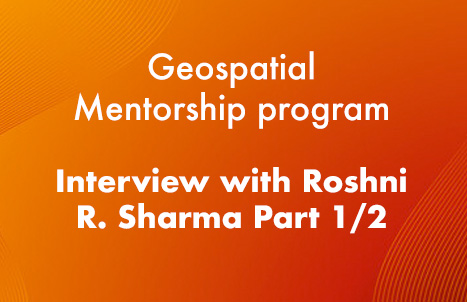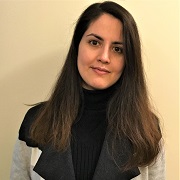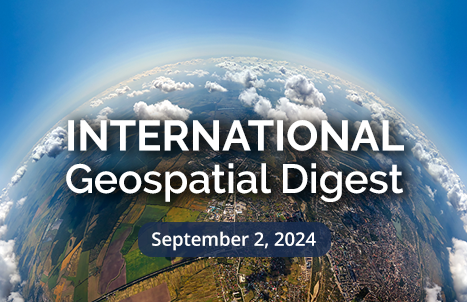Geospatial Mentorship program, Interview with Roshni R. Sharma Part 1/2
I had a great conversation with Roshni R. Sharma, Project Manager & Geospatial Analyst, at FrontierSI in Australia and one of the Geospatial World Rising Stars in 2022. Thank you, Jordan Palk for making this connection happen.
Hi Roshni! Thank you so much for your time. Can you tell us more about yourself and your career journey, and how you got into the Geospatial field?
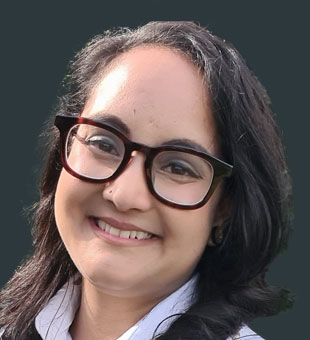 I actually fell into the profession. I went to an agricultural high school. Part of that just instilled in me a love for the environment. I was very fascinated by Earth system science. I studied environmental science and management for my bachelor’s. I had two GIS courses but they were very theocratical and I was not really sure how GIS will play into the world. When I finished studying, I didn’t really feel like I knew what I wanted to do. So, I thought I should start a Ph.D. because I can and also I didn’t want to make a decision. I started a Ph.D. in Climatology that was through Geo Sciences. During my studies, we had fieldwork in rural Cambodia to get the samples we needed for our research, we were in the middle of nowhere on a blow-up boat with an electric engine attached to it, and I could hear all insects around me, even mentioned there might be a resident crocodile in the lake. I was thinking Where am I? This is not what I thought I want to do with my life. But I had in my hand a GPS unit, we were basically going across the lake to identify the lake’s deepest point. I remember as we were going along the lake, I just had a moment when I realized this GPS unit knows where exactly I am, it can tell me how accurate that location is. But I was far away from my home. When I came back to Australia, I eventually ended up changing my Ph.D. to a research master’s. While I was finishing my master’s, I got into a course in Geospatial Information and I never looked back. I found it such a practical industry but also really admire the scientific rigour that sits behind everything we do. And I love how powerful our work in geospatial, geomatics, and surveying is which impacts the whole world. Everything we do translates into how we can protect the environment, have healthy happy societies, and combat climate change. It’s just so powerful and I really love it.
I actually fell into the profession. I went to an agricultural high school. Part of that just instilled in me a love for the environment. I was very fascinated by Earth system science. I studied environmental science and management for my bachelor’s. I had two GIS courses but they were very theocratical and I was not really sure how GIS will play into the world. When I finished studying, I didn’t really feel like I knew what I wanted to do. So, I thought I should start a Ph.D. because I can and also I didn’t want to make a decision. I started a Ph.D. in Climatology that was through Geo Sciences. During my studies, we had fieldwork in rural Cambodia to get the samples we needed for our research, we were in the middle of nowhere on a blow-up boat with an electric engine attached to it, and I could hear all insects around me, even mentioned there might be a resident crocodile in the lake. I was thinking Where am I? This is not what I thought I want to do with my life. But I had in my hand a GPS unit, we were basically going across the lake to identify the lake’s deepest point. I remember as we were going along the lake, I just had a moment when I realized this GPS unit knows where exactly I am, it can tell me how accurate that location is. But I was far away from my home. When I came back to Australia, I eventually ended up changing my Ph.D. to a research master’s. While I was finishing my master’s, I got into a course in Geospatial Information and I never looked back. I found it such a practical industry but also really admire the scientific rigour that sits behind everything we do. And I love how powerful our work in geospatial, geomatics, and surveying is which impacts the whole world. Everything we do translates into how we can protect the environment, have healthy happy societies, and combat climate change. It’s just so powerful and I really love it.
As Chair of National Young Professionals and Board member for the Surveying & Spatial Sciences Institute, you have founded a global geospatial mentoring program. Tell us about it. What led you to create this program and gather geospatial individuals around the world?
One of the things that I really noticed about our industry is that we are so good at technical skills, but we generally tend to be lacking in soft skills. We also seem to have strong age-related silos. In a lot of countries, the majority of surveyors or geospatial professionals will be over 15 (years of experience), and they will be retiring in the next 20 years or so.
When I took up the position of National Young Professionals chair, I was networking with as many young professionals as I could. There were some people in the community that I was working with, and we really got stuck on the issue that it’s hard for young professionals or students enter into the industry because we don’t know anyone, we don’t know what questions to ask, we don’t really understand what the workplaces and industry like, but we have a lot of potentials. It was at the Locate Conference in Adelaide, Australia, we sat down together in a spare room and mapped up a concept of what would be really useful, what we need as professionals, and what we could dream of. And we put together a structure for a program that would allow mentees (young professionals) and mentors to apply. We thought about how we actually matched the right person to the right person, so we brainstormed what information need to be collected to make that happen. We put together a series of topics that they would cover, and mentees and mentors have to think about the topics they could each prepare beforehand. The topics were still broad enough that we felt everyone would be able to like them. Then the program started. The first three years were so hard because I was managing the program mostly by myself, replying to emails every single day, trying to work out other people’s problems if they were talking to the mentors/mentees or anything like that but I found it really empowering. It felt like I was helping people, trying to do something good for the industry. As time went by, it was going to see other people were going to join the mentoring program committee, have more hands, and share the load. Also, some really good ideas coming up about how we could improve the program. I think that was very important too because when you are running something to serve people it is very important to listen to what people are saying, what they need, and what is or is not working.
It was also great to reach out to the International Federation of Surveyors (FIG) African network, we were able to get a pilot program to start the FIG mentoring program. FIG African Regional Network has been very kind and helping us to secure a fund to have an actual platform that we can use now to run the program. It has been really a give and take. So, the program in the next couple of years expanded to a really beautiful robust comprehensive global program which sustains over time.
At the moment the program is just in Australia and Africa, but if anyone would be interested in being like a local organizing committee for the program in Canada or America it would be amazing. I would be happy if interested people email me or check out here. As we are building up the Australian and African regions, we are seeking people across all the other regions as well. And it takes people saying I am willing to put in some time to help create something in my region.
The second part of the interview will be published in another article. We talked about Roshni’s challenges throughout her career journey as well as her podcast called “Discomfort Zone”. Stay tuned!

